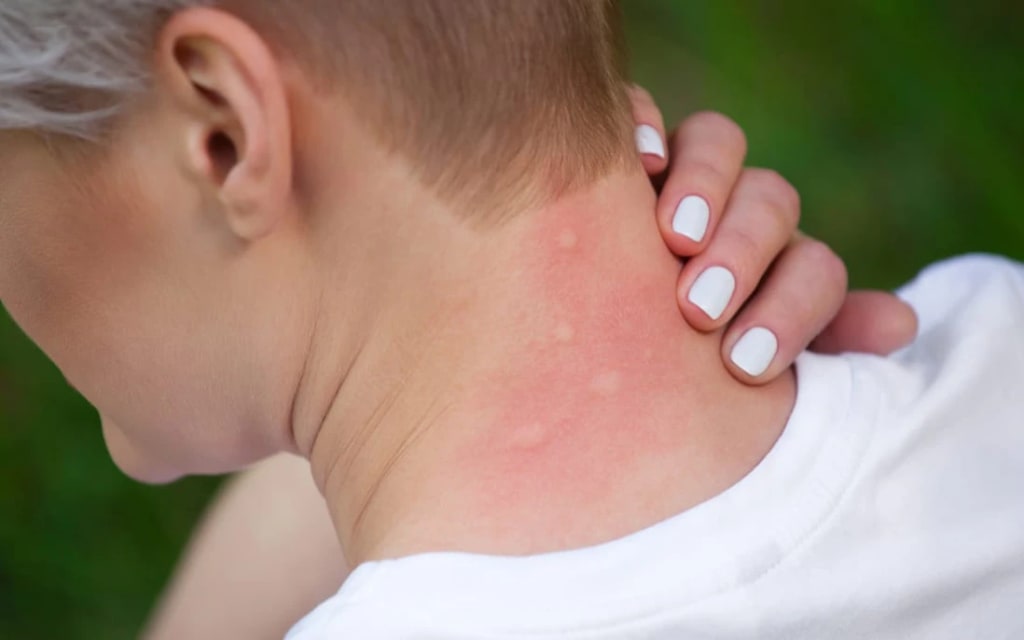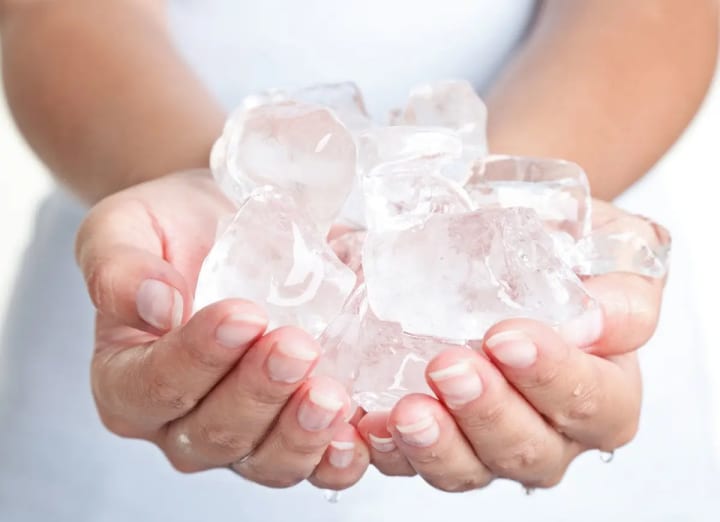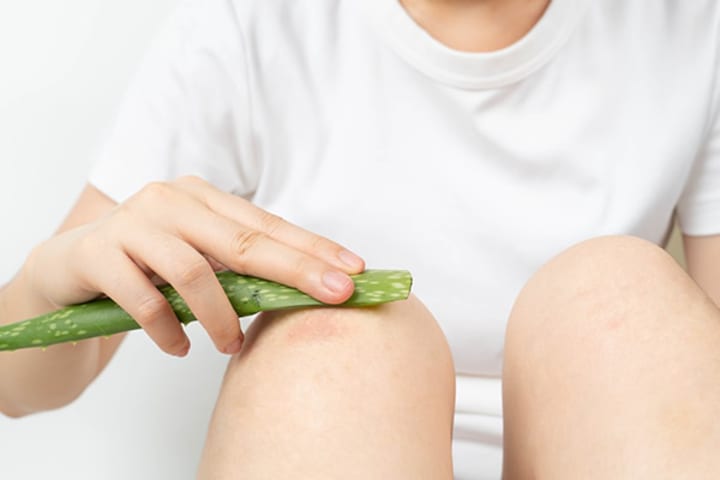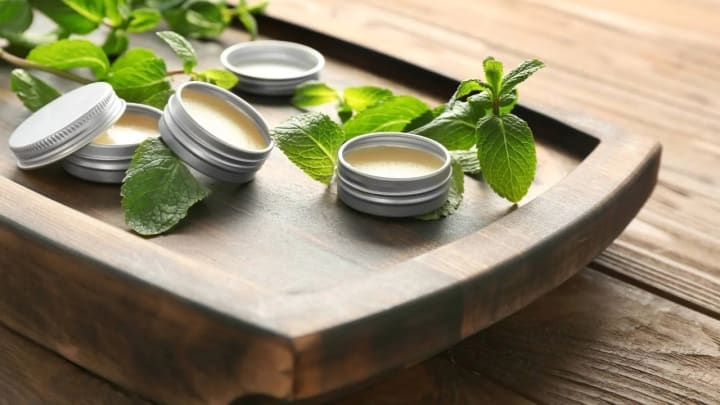14 ways to quickly relieve itching from mosquito bites at home
The itch caused by mosquito bites is really annoying and if you keep scratching, the bite may even become scratched and increase the risk of infection.

Summer is the season with the most mosquitoes because the hot and humid weather creates favorable conditions for mosquitoes to breed and develop. Mosquito bites leave behind uncomfortable itchy papules and can leave scars if the bites irritate the skin due to scratching too much.
There are many ways to quickly relieve itching caused by mosquito bites at home that you can refer to. Note, with anti-itch topical medications, read the instructions carefully or talk to a pharmacist to avoid overdose or when using for children, pregnant women and breastfeeding women.
1. Apply ice to reduce itching
Ice helps slow down the inflammation that causes itching. Note that you should not apply ice directly to the skin because it can cause frostbite. It is best to wrap the ice in a thin cloth and apply it to the mosquito bite for 5-10 minutes at a time, several times a day.

2. Oatmeal
Not only is oatmeal a healthy food, it can be used to reduce itching and swelling caused by mosquito bites thanks to its special compounds that have anti-irritant effects.
You can mix oatmeal and water in a 1:1 ratio and apply it to the burned skin for about 10 minutes and then wipe it off with a soft towel. If the sting is more severe, try soaking in a bath mixed with oatmeal and moist water for about 10 minutes.
3. Warm compress
Besides reducing the itching caused by mosquito bites with ice, you can also compress the bite with a clean warm towel for up to 10 minutes at a time. Note that this method is not recommended for open wounds.
4. Honey
Particularly popular in treating coughs and sore throats, honey is also used to reduce itching caused by mosquito bites thanks to its strong antibacterial and anti-inflammatory effects.
By applying a drop of honey to the mosquito bite, the inflammation will be reduced. However, it should be noted that you should limit scratching if you do not want the honey to "stain" on your skin.
5. Aloe vera
Also a popular food in many Vietnamese families, now you can add another use of aloe vera to your home tips: reducing itching caused by mosquito bites. Aloe vera helps stings heal faster, the same thing it does for burns.

Simply cut a small piece of aloe vera and apply the gel to the mosquito bite area, let the gel dry naturally and reapply if you still feel itchy.
6. Baking soda
Baking soda has countless uses from cooking to cleaning utensils. Baking soda is also used to reduce mosquito bites.
The method is very simple, you mix baking soda powder with water to form a thick mixture and then apply it to the itchy area, let it dry for about 10 minutes and then rinse.
7. Basil plant
Basil with its characteristic aromatic oil not only makes food taste more delicious but also helps reduce itching caused by mosquito bites effectively.
With fresh basil leaves, you just need to crush a few leaves and rub them on the sting. If you only have dry basil leaves, you can boil water, add a few dried basil leaves, wait for it to cool, dip a clean towel in this water and gently wipe the mosquito bite. Some people may experience irritation with basil. If your skin feels more itchy or severely swollen, stop and see a doctor.
8. Vinegar helps disinfect
Since ancient times, vinegar has been used as a natural remedy to help with many conditions, from infections to blood sugar conditions.
Vinegar can also help relieve salt bites. With just a small drop, the stinging and burning sensation caused by mosquitoes will be relieved. In addition, vinegar also acts as a natural antiseptic if you scratch continuously and cause scratches on the skin.
By soaking a thin towel in cold water mixed with vinegar and then applying it to the bite, or if the mosquito-bitten area is larger, try soaking in a warm water bath mixed with vinegar for about 20 minutes to see the change.
9. Onion
Onions help reduce itching and irritation from mosquito bites thanks to their natural antibacterial and antifungal properties. Slice an onion and apply it to the sting for a few minutes, then rinse with clean water and the itching will subside.
10. Peppermint oil
Peppermint oil is popular in many itch relief remedies due to its effective cooling and anti-inflammatory properties.
One simple way to relieve the itching of mosquito bites at home is to apply diluted peppermint oil to the bite or add it to warm water for a soak. However, peppermint may not be suitable for use on young children.
11. Lemon balm/lemon balm oil
Lemon mint oil is native to Europe and Central Asia and is a member of the mint family with many health benefits.
According to Healthline, there is evidence that lemon balm oil can help relieve itching and discomfort for a variety of skin conditions, from mosquito bites to psoriasis and genital herpes. Tannins and polyphenols work to reduce inflammation, speed healing and reduce the risk of infection.
You can try applying crushed perilla leaves directly to the itchy area or buy an anti-itch cream that contains lemon balm.

12. Chamomile tea
Chamomile oil can help reduce itching and inflammation, so it can be used to relieve itching from mosquito bites. You can do this at home by soaking a tea bag in water, putting it in the refrigerator for about 30 minutes, then applying it to the bite for 10 minutes, then rinsing it off with clean water.
Although rare, some sensitive people may be allergic to the daisy family. If an allergic reaction occurs, discontinue use and consult a physician.
13. Garlic
Garlic is a natural food, used in remedies ranging from heart disease to high blood pressure. Applying garlic to insect bites to reduce discomfort is one of the ways to reduce itching caused by mosquito bites at home.
Note, do not apply garlic directly to the sting but mix it with moisturizer before applying to avoid irritation. Leave it for 10 minutes and rinse with clean water and apply a cool towel.
14. Medicine
- Antihistamines
According to Medical News Today, some antihistamines can be an effective way to relieve the itching of mosquito bites by blocking the release of histamine into the bloodstream. Antihistamines can come in pill or cream form.
- Hydrocortisone cream
This is a glucocorticoid drug with anti-inflammatory, anti-allergic, and anti-itch effects. However, this cream is not indicated for children, pregnant women, or people with skin infections. The drug should only be used for a short time with moderate levels and requires a doctor's prescription.
Products containing local anesthetic ingredients such as lidocaine or benzocaine may be beneficial by providing a numbing effect.
When to worry about mosquito bites?
Many mosquito bites cause only mild itching and swelling, but in some cases, mosquito bites can cause severe, life-threatening allergic reactions to proteins in mosquito saliva that require emergency medical care (known as Skeeter syndrome).
Skeeter syndrome is characterized by signs of inflammation, including swelling, heat, redness, and itching or pain. People with skeeter syndrome typically experience swelling and redness from a mosquito bite. Other cases described in medical literature have shown that these reactions are very severe, with symptoms such as the face may swell , the eyes may swell, and entire limbs may become red and swollen.
In the most severe cases, mosquito bites can cause bruising and blistering. Some people may also experience fever or vomiting or difficulty breathing.
It can be difficult to tell the difference between a skeeter syndrome reaction and a skin infection because both conditions can cause redness, swelling, and pain, and both involve bites. But while a skin infection usually occurs a few days after a bite or injury, the symptoms of skeeter syndrome occur immediately.
However, people with skeeter syndrome are at higher risk of developing an infection because they are more likely to scratch the bite and have larger wounds that heal faster. So if you develop a fever after a mosquito bite or if the bite seems to get bigger or more inflamed and doesn’t get better after a few days, see your doctor to rule out an infection.
About the Creator
Ken aquariums
Telling stories my heart needs to tell <3 life is a journey, not a competition
If you like what you read, feel free to leave a tip,I would love some feedback
https://sites.google.com/view/hk-decor/trang-ch%E1%BB%A7
Enjoyed the story? Support the Creator.
Subscribe for free to receive all their stories in your feed. You could also pledge your support or give them a one-off tip, letting them know you appreciate their work.






Comments
There are no comments for this story
Be the first to respond and start the conversation.